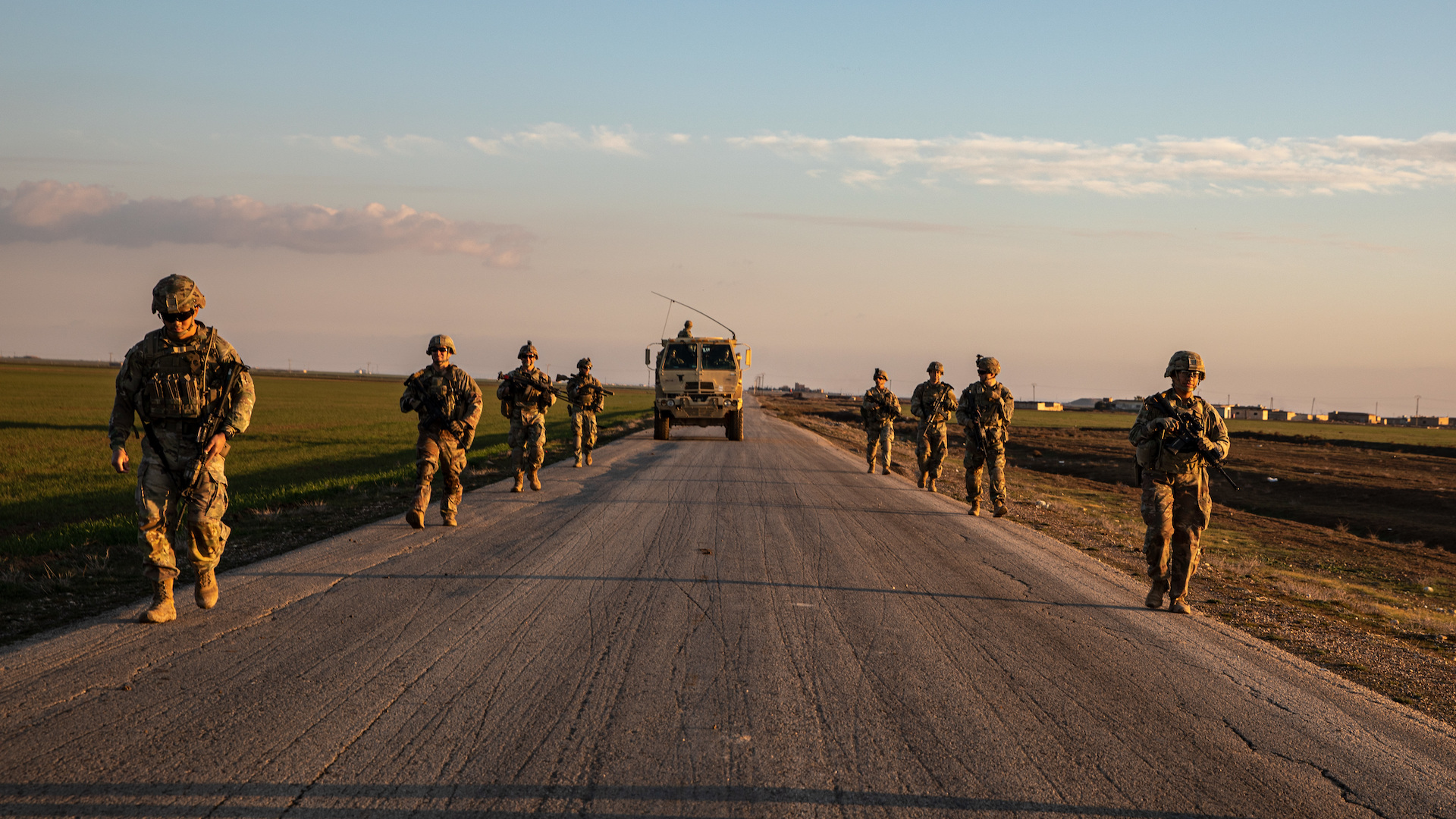

The Russian military is increasingly harassing United States service members in Syria by buzzing their locations with armed ground attack aircraft, the head of U.S. Central Command said on Thursday.
Asked by Sen. Deb Fischer (R-Neb.) during a Senate Armed Services Committee hearing on Thursday about the status of the Russian military’s presence in Syria in the year since it invaded Ukraine, Gen. Michael ‘Eric’ Kurilla, CENTCOM’s commander, responded that the U.S. had observed an increase in “unsafe and unprofessional behavior” on the part of the Russian forces deployed there.
Kurilla singled out the Russian air force, in particular.
“They fly over our bases with ground attack aircraft with weapons on them in an attempt to try to be provocative,” he said. “Really, it’s not what we expect from a professional air force.”
Subscribe to Task & Purpose Today. Get the latest military news, entertainment, and gear in your inbox daily.
Some 900 U.S. troops remain deployed to Syria as part of Operation Inherent Resolve, the ongoing mission to defeat the Islamic State group, and Russian ground troops are known to frequently harass their American counterparts in something of an undeclared road war between the two forces there.
The aerial incidents, however, are “not new [behavior], but we have seen a spike in it since about March 1 in Syria,” Kurilla told Fischer.
Indeed, Kurilla’s testimony came just over a week after U.S. Air Forces Central commander Lt. Gen. Alexus Grynkewich described “troubling behavior” involving Russian aircraft buzzing U.S. troops on the ground in Syria without warning, prompting protests from U.S. commanders there to their Russian counterparts.
The spike in incidents is part of a troubling trend. The most recent lead inspector general report for OIR, which encompasses the last three months of 2022, found that Russian aircraft increasingly violated the deconfliction arrangements with U.S.-led coalition forces in Syria “aimed at preventing an inadvertent collision or clash” in an effort to continually harass U.S. forces on the ground.
Kurilla’s comments also came on the heels of a similarly unprofessional interaction involving Russian aircraft over the Black Sea which saw two Russian Su-27 “Flanker” aircraft dump fuel on a U.S. Air Force MQ-9 Reaper drone before one of the fighters collided with the drone, forcing the unmanned aircraft to crash.
That incident “follows a pattern of dangerous actions by Russian pilots while interacting with U.S. and Allied aircraft over international airspace, including over the Black Sea,” as U.S. European Command said in a Tuesday statement. “These aggressive actions by Russian aircrew are dangerous and could lead to miscalculation and unintended escalation.”
While Russian aircraft may enjoy their antics now, if it ever escalates into an outright clash, well, we all know how that will likely go.
The latest on Task & Purpose
- A major US Army formation just dropped new restrictions on tank names
- How Russia uses US military veterans in its propaganda war against Ukraine
- Jon Bernthal is back as The Punisher in ‘Daredevil: Born Again’
- The Russian military is so low on ammo that troops are reduced to fighting with e-tools
- How the World War I Maxim machine gun became a weapon of choice in Ukraine